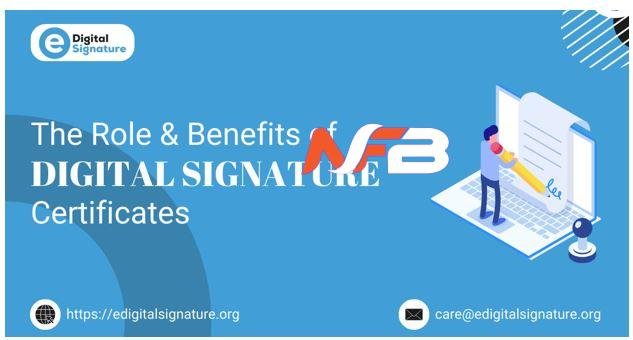In the digital age, ensuring the authenticity and integrity of electronic documents and communications is paramount. Digital signing certificates (DSCs) play a critical role in this realm, providing a means to verify the identity of the signer and guarantee that the content has not been altered. This article delves into the intricacies of digital signing certificates, exploring their purpose, functionality, types, applications, and benefits.
What is a Digital Signing Certificate?
A digital signing certificate is a type of electronic credential used to authenticate the identity of an individual, organization, or device in online transactions. It operates on the principles of public key infrastructure (PKI), which involves the use of a pair of keys: a private key and a public key. The private key, kept secure by the certificate holder, is used to create a digital signature, while the corresponding public key is used by others to verify the authenticity of the signature.
How Digital Signing Certificates Work
The process of using a digital signing certificate involves several steps:
Certificate Issuance:
A trusted Certificate Authority (CA) issues a digital signing certificate after verifying the identity of the applicant. This certificate contains the applicant’s public key and other identifying information.
Creating a Digital Signature:
When signing a document, the signer’s private key encrypts a hash (a fixed-size string of characters) of the document. This encrypted hash, along with the signer’s public key, constitutes the digital signature.
Verification:
The recipient of the signed document uses the signer’s public key to decrypt the hash and compares it with a freshly generated hash of the document. If they match, the signature is valid, confirming the document’s integrity and the signer’s identity.
Types of Digital Signing Certificates
Digital signing certificates come in various types, each suited for different levels of security and applications:
Class Certificates:
These provide basic security and are typically used for low-risk transactions where verifying the email ID is sufficient.
Class 2 Certificates:
Used for medium-risk transactions, Class 2 certificates require more stringent identity verification, often suitable for business transactions and document signing.
Class 3 Certificates:
These offer the highest level of security, involving rigorous identity verification processes. They are used for high-value transactions and in scenarios requiring robust authentication, such as e-commerce and legal document signing.
Applications for Digital Signing Certificates
Digital signing certificates are employed across various domains to ensure secure and authentic electronic interactions:
Email Security: By digitally signing emails, senders can assure recipients of the authenticity of their communication and the integrity of the message content.
Software Distribution: Software developers use digital signatures to authenticate their software, ensuring that users can verify its source and integrity.
Document Signing: In legal, financial, and governmental sectors, digital signing certificates enable the secure signing of contracts, agreements, and official documents, providing legal validity and non-repudiation.
E-commerce: Digital signing certificates are essential in e-commerce for securing transactions, verifying the identity of businesses, and protecting sensitive information.
Authentication: They are also used in systems requiring strong user authentication, such as VPN access and secure website logins.
Benefits of Digital Signing Certificates
The adoption of digital signing certificates offers numerous advantages:
Security: Digital signatures ensure that documents and communications are protected against tampering and unauthorized alterations, maintaining their integrity.
Authentication: They provide a reliable means to verify the identity of the signer, reducing the risk of impersonation and fraud.
Non-repudiation: Once a document is signed digitally, the signer cannot deny their involvement, providing legal and contractual assurance.
Efficiency: Digital signing streamlines workflows by eliminating the need for physical signatures, reducing paperwork, and speeding up processes.
Environmental Impact: By reducing the reliance on paper-based documentation, digital signing contributes to environmental conservation efforts.
Challenges and Considerations
While digital signing certificates offer significant benefits, there are challenges and considerations to be mindful of:
Certificate Management: Proper management of digital certificates is crucial. Expired or compromised certificates can lead to security vulnerabilities.
Cost: Obtaining and maintaining digital signing certificates, especially high-assurance ones, can be costly for individuals and small businesses.
Technical Complexity: Implementing and using digital signing solutions requires a certain level of technical expertise, which can be a barrier for some users.
Legal Recognition: The legal acceptance of digital signatures varies across jurisdictions, and it’s important to ensure compliance with local regulations.
Also Read, Buy Digital Signature Certificate Online
Conclusion
Digital signing certificates are indispensable tools in the modern digital landscape, providing robust mechanisms for ensuring the authenticity and integrity of electronic documents and communications. As businesses and individuals increasingly rely on digital transactions, the importance of secure and verifiable digital signatures cannot be overstated. By understanding the workings, applications, and benefits of digital signing certificates, users can better appreciate their role in fostering trust and security in the digital world. While challenges remain, the continued advancement of digital signing technologies promises to address these issues, paving the way for a more secure and efficient digital future.











Leave a Reply